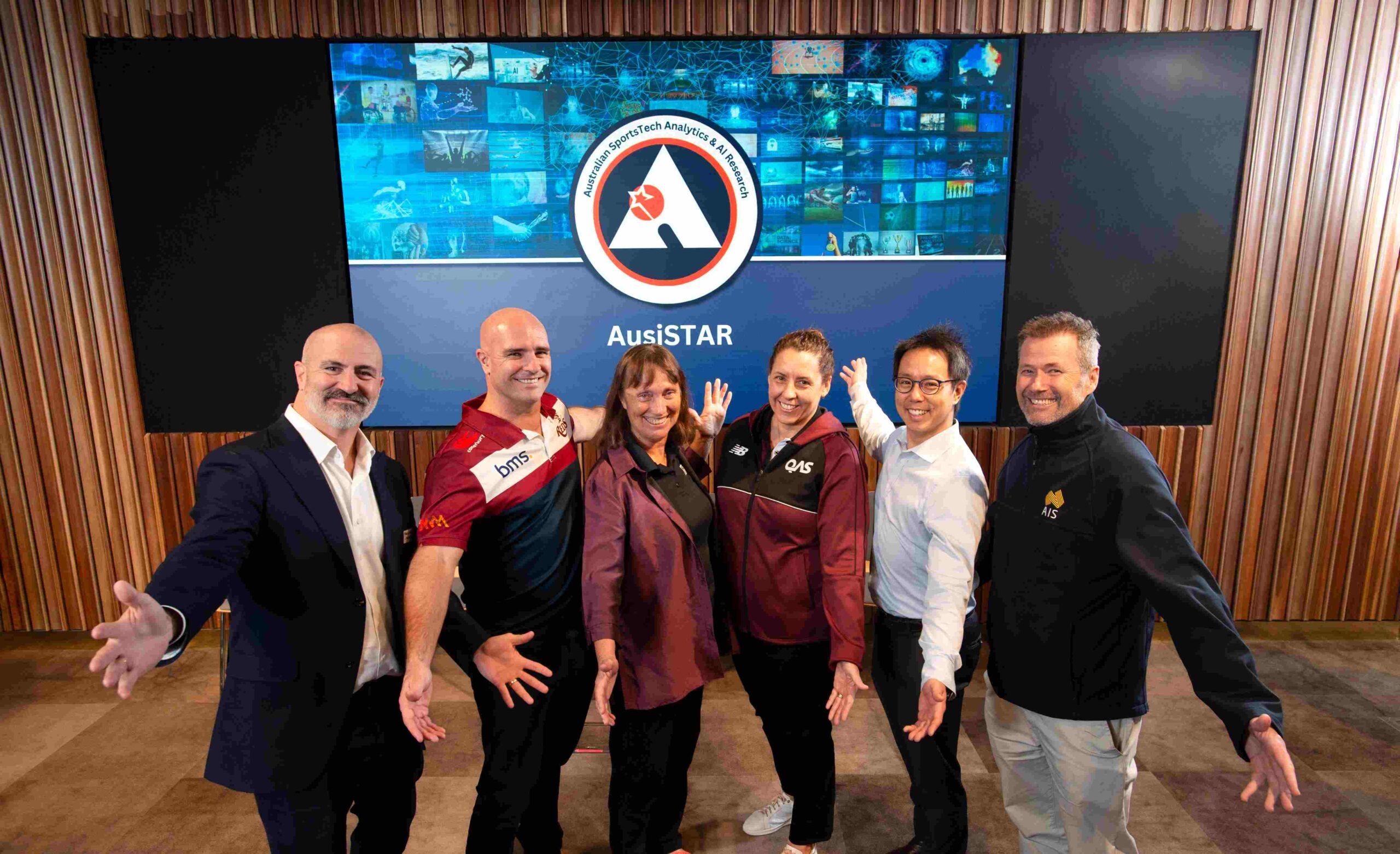A multi-million dollar investment by QUT into sports data science will help nurture better athletes in the lead up to the Brisbane 2032 Olympics and Paralympics.
The Brisbane university will inject $4.5 million and provide a home base for the Australian Sports Tech Analytics & AI Research (AusiSTAR) Hub.
The national hub, which was launched this week, is a consortium of universities, sports associations, government agencies and private companies.
AusiSTAR will be led by internationally-recognised statistician Distinguished Professor Kerrie Mengersen, who also leads the QUT Centre for Data Science.
The hub will train a new generation of sports data analysts to help address a national shortage of these experts, who provide vital insights into areas including performance and injury prevention.
Professor Mengersen said AusiSTAR aimed to be a national and global leader in sports, eSports, sport tech analytics, and AI research and translation.
It will benefit athletes of all ages and abilities across Australia – from elite athletics to community sports and esports – and also showcase how sports can positively impact public health, economics, and society.
“With Brisbane, and Australia, getting ready to host the 2032 Olympics and Paralympics, there is a huge focus on the crucial importance of data in sport and the science-based insights it can provide our elite athletes in areas including performance and injury prevention,” Professor Mengersen said.
“But, at the same time, Australia has a critical lack of sports data analysts. We urgently need more experts to manage and analyse the data which underpins the predictions of how Australian Olympians, Paralympians and all athletes will perform at their best, prevent injury and protect their mental health.
“Elite athletes and teams across Australia now have vast amounts of data from wearable sensors, instrumented equipment, and the increasing use of computer vision to extract more granular information from video. But our capabilities to analyse and action this explosion of data have not kept pace with hardware development.
“One of the big roles of the AusiSTAR Hub will be to train up a cohort of sports data scientists in high performance sports and para-sports.
“This will help meet the urgent demand from sports organisations – and also provide data experts whose skills can transfer to a range of industries including defence, business, health, social sciences and other data-focused fields.”
One of the hub’s first practical ways of achieving this will be training 25 postgraduate researchers through the Next Generation Graduates Program – funded by CSIRO and coordinated by QUT (see video).
These researchers are already working on industry projects in rugby, rowing, athletics, swimming, wheelchair basketball and other sports.
The vision for a national sports data hub was first proposed to the Australia’s sports sector by Professor Mengersen at the AIS’ STARS Conference in late 2021.
The Australian Government estimates sport is now a $32 billion industry in Australia, with our nation ranked fifth in the global sports tech industry.
“Data science, which embraces analytics and AI, is the number one major strategic opportunity in Australia,” Professor Mengersen said.
This week’s launch attracted representatives from QUT’s AusiSTAR partners, including the Australian Institute of Sport, CSIRO, and Queensland Academy of Sport.
The hub also includes peak sports bodies such as Rugby Australia, Queensland Rugby Union, Cricket New South Wales and Disability Sports Australia, along with the South Australian, Victorian and Western Australian institutes of sport.








